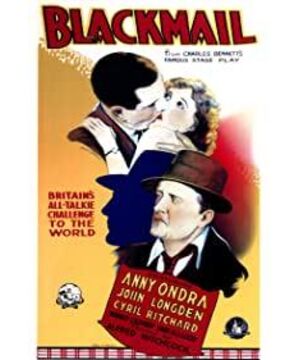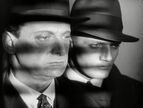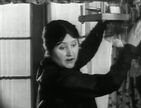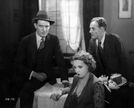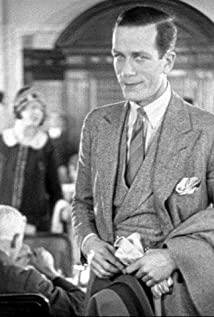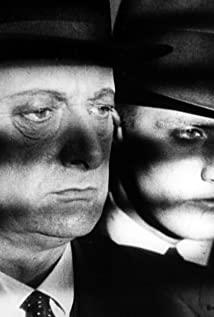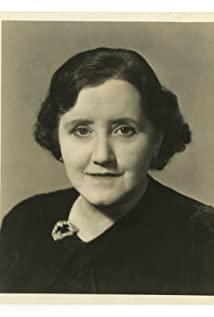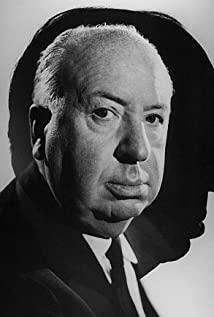Some of the montage techniques in the film are unusual by any standards even now, especially the opening 15 minutes. This is also one of my favorite parts of this film. There are several other attempts at sound, and the resourceful Hitchcock doesn't seem like a sound novice at all in this film. The use of voiceovers is so bold and creative, bringing out his director's desire for control to the end.
The film begins with a bold shot of a rapidly spinning disc covering the entire screen, which we later realize is actually a wheel of a car. The next shot introduces us to the officers in the back seat of the car. After the car stopped, the police picked up the dust cloth behind and got out of the car. People who know Hitchcock's films know that the drapery acts as a kickoff in Hitchcock's films, just like watching a stage play, we know that a good show is about to be staged. It didn't take long for Hitchcock's favorite themes to follow. Police cross the street and a group of playing children enters the frame. Children in Hitchcock's films tend to suggest some kind of chaos that hasn't happened or has happened. Children who sing in "Marnie" or "The Birds".
The police pushed a panicked old woman away and walked into a building. Then came the three symbols that Hitchcock was fascinated with: the staircase, the hallway, and the door. Hitchcock-esque staircases have been used throughout his career as objects that symbolize new actions and experiences. Leslie Brill has convincingly analyzed the difference between going up and down stairs in Hitchcock's films, which is often a sign that something bad is about to happen or has happened. This is confirmed in several films, such as "Psycho" where Lila walks up the long stairs of the mysterious Norman mother. This film is no exception, and the staircase appears several times. The corner stairs that Alice and Crewe walk to Crewe's house later are the most beautiful.
So far, this is still the beginning of the film. Then the police pushed open the door and we saw a man lying on the bed, his face covered with the newspaper he was reading. The camera pans along his line of sight to a mirror showing the policeman's face. It's a great Hitchcockian scene. Reveals the themes of hallucinations and delusions that Hitchcock equally valued.
The man lying down tried in vain to get a gun on the table, but ultimately failed. He was escorted by the police to the police station. A montage of close-up ashtrays tells us of his lengthy interrogation. This shows Hitchcock's frugal professional habits. He was then hand-printed by the police and put in a cell. Afterwards, the camera followed the police as they walked through the promenade. One of the cops said casually, "Ah, it's over earlier than we thought!" That's the line, seemingly inadvertently ushering in Hitchcock's sound film era.
It is this 15-minute silent film that underscores Hitchcock's cinematic mastery and his relentless obsession with detail. The sound part after that is obviously disturbed by the sound, which is not as delicate as the beginning. But Hitchcock's use of sound is also commendable. Especially these two places. After Alice murdered, she saw the scream of the beggar on the street and the scream of the old woman Crewe knew elegantly connected, which was a perfect transition; She was in a trance, and in the end she could only hear the word "knife" and dropped the bread-cutting knife directly on the ground. This is the film's most brilliant use of sound.
Also worth mentioning is the setting in Crewe's apartment, where the mask hanging on the door suggests that the artist's disguised face also echoes the mask that Tracie ran into while fleeing the museum in the later film. There are also two of the most important props in the film. Portraits of laughing clowns and nudes by Crewe and Alice. Every appearance of the clown mask unmistakably demonstrates the director's ironic stance. The first is when Alice goes to Crewe's house in a shady way; the second is after Alice kills Crewe; the third is when Frank decides to hide Alice's crimes; the fourth is a fluke for both of them Get away with guilt. And the nude portraits of Alice and Crewe let us see their suppressed desires. In addition, Alice's screen split effect when changing her tutu also fully reflects the sexual tension in this film.
Blackmail is a noir film. All the characters in the film are pathetic. Incompetent cops, mostly incompetent cops and detectives in Hitchcock films; Alice's boyfriend with questionable morals; Tracy who blackmails Alice, though he's bad, he doesn't kill after all; Down to Crewe, until the end of the film we still don't know if it was a planned rape or just a lustful deviance; and Alice, who seems to be the victim, don't forget that she had been unfaithful to her boyfriend Went on a date with Crewe and volunteered to change into a tutu.
No one is innocent in this film, and no one is unforgivable. They worked together to complete the murders of Crewe and Tracy. Looking back at the sexual assault of Crewe and the threats of Tracy, it is even more desperate and pitiful.
View more about Blackmail reviews


